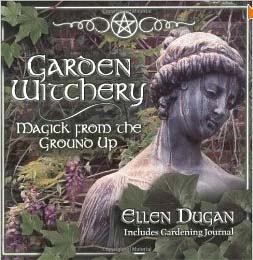
Book: The Secret History Of Pythagoras by Samuel Croxall
Pythagoras of Samos (c. 570-c. 495 BC) was an Ionian Greek philosopher and founder of the religious movement called Pythagoreanism. Most of our information about Pythagoras was written down centuries after he lived, thus very little reliable information is known about him. He was born on the island of Samos, and may have travelled widely in his youth, visiting Egypt and other places seeking knowledge. Around 530 BC, he moved to Croton, a Greek colony in southern Italy, and there set up a religious sect. His followers pursued the religious rites and practices developed by Pythagoras, and studied his
Philosophical theories. The society took an active role in the politics of Croton, but this eventually led to their downfall. The Pythagorean meeting-places were burned, and Pythagoras was forced to flee the city. He is said by some to have ended his days in Metapontum.
Pythagoras had undertaken extensive travels, and had visited not only Egypt, but Arabia, Phoenicia, Judaea, Babylon, and even India, for the purpose of collecting all available knowledge, and especially to learn information concerning the secret or mystic cults of the gods. The journey to Babylon is possible, and not very unlikely. That Pythagoras visited Egypt, may be more probable, and many ancient writers asserted this. Enough of Egypt was known to attract the curiosity of an inquiring Greek, and contact between Samos and other parts of Greece with Egypt is mentioned.
It is not easy to say how much Pythagoras learned from the Egyptian priests, or indeed, whether he learned anything at all from them. There was nothing in the symbolism which the Pythagoreans adopted which showed the distinct traces of Egypt. The secret religious rites of the Pythagoreans exhibited nothing but what might have been adopted in the spirit of Greek religion, by those who knew nothing of Egyptian mysteries. The philosophy and the institutions of Pythagoras might easily have been developed by a Greek mind exposed to the ordinary influences of the age. Even the ancient authorities note the similarities between the religious and ascetic peculiarities of Pythagoras with the Orphic or Cretan mysteries, or the Delphic oracle.
His followers established a select brotherhood or club for the purpose of pursuing the religious and ascetic practices developed by their master. The accounts agree that what was done and taught among the members was kept a profound secret. The esoteric teachings may have concerned the secret religious doctrines and usages, which were undoubtedly prominent in the Pythagorean system, and may have been
Connected With the worship of Apollo. Temperance of all kinds seems to have been strictly urged. There is disagreement among the biographers as to whether Pythagoras forbade all animal food, or only certain types. The club was in practice at once "a philosophical school, a religious brotherhood, and a political association.
As an active and organised brotherhood the Pythagorean order was everywhere suppressed, and did not again revive. Still the Pythagoreans continued to exist as a sect, the members of which kept up among themselves their religious observances and scientific pursuits, while individuals, as in the case of Archytas, acquired now and then great political influence. Concerning the fate of Pythagoras himself, the accounts varied. Some say that he perished in the temple with his disciples, others that he fled first to Tarentum, and that, being driven from there, he escaped to Metapontum, and there starved himself to death. His tomb was shown at Metapontum in the time of Cicero.
Pythagoras set up an organization which was in some ways a school, in some ways a brotherhood, and in some ways a monastery. It was based upon the religious teachings of Pythagoras and was very secretive. The adherents were bound by a vow to Pythagoras and each other, for the purpose of pursuing the religious and ascetic observances, and of studying his religious and philosophical theories. The claim that they put all their property into a common stock is perhaps only a later inference from certain Pythagorean maxims and practices. On the other hand, it seems certain that there were many women among the adherents of Pythagoras.
Pythagoras started a secret society called the Pythagorean brotherhood devoted to the study of mathematics. This had a great effect on future esoteric traditions, such as Rosicrucianism and Freemasonry, both of which were occult groups dedicated to the study of mathematics and both of which claimed to have evolved out of the Pythagorean brotherhood. The mystical and occult qualities of Pythagorean mathematics are discussed in a chapter of Manly P. Hall's The
Secret Teachings of All Ages entitled "Pythagorean Mathematics".
Pythagorean theory was tremendously influential on later numerology, which was extremely popular throughout the Middle East in the ancient world. The 8th-century Muslim alchemist Jabir ibn Hayyan grounded his work in an elaborate numerology greatly influenced by Pythagorean theory. Today, Pythagoras is revered as a prophet by the Ahl al-Tawhid or Druze faith along with his fellow Greek, Plato.
Download Samuel Croxall's eBook: The Secret History Of PythagorasDownloadable books (free):
Anonymous - The Secret Book Of Artephius
Medieval Grimoires - The Secret Grimoire Of Turiel
Antoine Fabre Dolivet - The Golden Verses Of Pythagoras
Allen Greenfield - The Secret History Of Modern Witchcraft
Samuel Croxall - The Secret History Of Pythagoras












